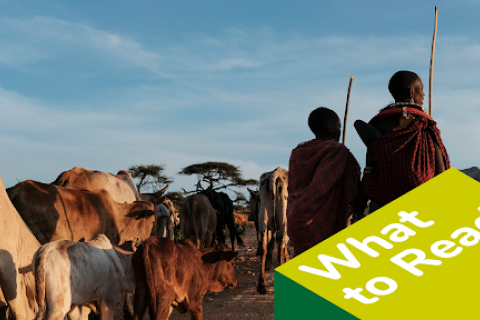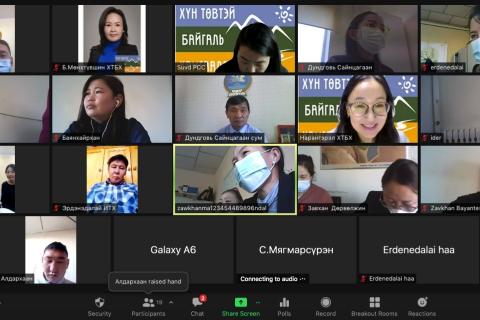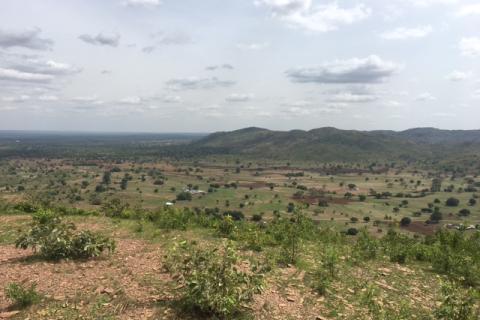Gender and land champions can help - seven years of WOLTS in Tanzania
Many rural communities in Tanzania share similar challenges from mining companies and investors. I have seen first-hand how men and women gender and land champions can help.
Are pastoralists and their livestock to blame for climate change?
This blog post is part of the series What to Read.
As humanity grapples with understanding the causes and consequences of the mounting climate crisis, there can be a tendency to oversimplify issues in a bid to identify solutions. Such oversimplifications have stemmed from a broad-brush analysis which identifies all livestock production and animal products as key drivers of climate change.
Protesting herders to get government support to stop harmful mining operations
Like many countries, Mongolia has been hit hard by the Covid-19 pandemic and its government has been accelerating investments in the mining sector to help the economy. However, this has led to protests by local communities concerned about their land rights, and about their health. Among them is the community of Dalanjargalan, where the WOLTS project has been working with local champions who have been trained in land law, gender issues and participatory decision-making.
A sustainable future needs women and men working together for change
It’s that time of year again! March means International Women’s Day and the annual meeting of the UN Commission on the Status of Women. It’s not surprising, after COP26 in Glasgow, that this year’s CSW66 links gender equality with climate change. The official theme is ‘achieving gender equality and the empowerment of all women and girls in the context of climate change, environmental and disaster risk reduction policies and programmes.’
"It will be fun to develop land-use planning, if we do it together"
“It will be fun to develop land-use planning, if we do it together.” This was a comment from one of the local land managers during 30 online workshops run by PCC to introduce new Gender Guidelines for local land management in Mongolia.
Preserving rangelands for people and climate: Lessons from Mongolia
In Mongolia, the word “rangeland” is synonymous with “homeland.” It is a clue to the importance of rangelands in a country where a quarter of Mongolians are herders, and the wider livestock economy provides sustenance, income, and wealth to nearly half of the population. For many nomadic societies herding is at the core of their life. Around the world, rangelands support the livelihoods, social traditions, and resilience of 500 million people, primarily in low-income countries.
To secure equal rights to land, bring men and women together
There is an underlying tension in the land rights movement that is rarely addressed head on, which is the perception that securing women’s land rights threatens community land rights. Community land rights are typically held by indigenous people, small-scale and subsistence farmers, pastoralists, herders and many other groups who are directly dependent on land for their livelihoods but whose land tenure is often the most precarious.
Equitably restoring landscapes and supporting land and natural resource tenure security: the importance of project design and planning
Landscape restoration creates opportunities for securing the land and natural resource rights of local land users as well for improving soil health, sequestering carbon, and enhancing biodiversity. In order to achieve synergies between these interrelated aims, restoration practitioners must carefully consider how projects are managed, particularly with regard to supporting equity in project design and planning—the focus of this blog.
Gender guidelines to be distributed in all 330 districts of Mongolia
Pilot study supports national roll-out of participatory land use planning
Sound, sustainable land management is critical to the long-term viability of Mongolia’s traditional herding way of life. And careful planning at local level, in a participatory and gender-inclusive way, is needed to underpin that.












